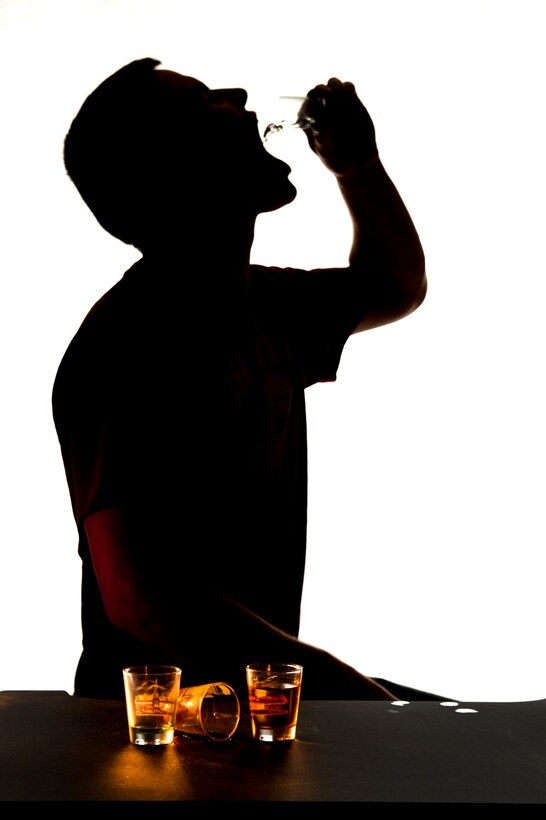Alcohol is typically used in social settings like parties or social gatherings. People usually go to alcohol to “let loose” or “get lit” but a lot of people go to alcohol for more of the negative things. Some of these negatives would be binge drinking or even emotional drinking and this could lead to bigger negatives like addiction to alcohol or even trying more drugs.

According to Harvard School of Public Health, “in 2014, about 61 million Americans were classified as binge alcohol users (5 or more drinks on the same occasion at least once a month) and 16 million as heavy alcohol users (5or more drinks on the same occasion on 5 or more days in one month).”
“Most people don’t know you are so much of an alcoholic,” said Anthony Baum, senior art major. “You can have an alcohol transfusion and possibly die.”
College students are typically the most targeted when it comes to alcoholism. It comes from numerous factors such as popularity, peer pressure, or simply just trying to fit in with the “co
“I personally do not drink alcohol,” Nick Leotta, junior finance major, said. “I have friends who drink alcohol and it scares me a lot because I don’t want them to ‘blackout’ or become addicted.”
According to HuffPost, “We drink alcohol because it’s fun. It makes us feel good. If your buddy Todd is punching walls, screaming and ruining the party with his aggressiveness, that is a sign of abnormal drinking habits. If he consistently vomits every time he drinks, that is a sign of that his brain refuses to acknowledge limits. If your best friend is consistently wetting the bed, actually blacking out (that means losing consciousness), or having sexual encounters with people and cannot remember their face or name the next day, then it is time to intervene.”
“It’s dangerous and very addictive,” said sophomore Taylor Pedersen. “I think that college freshmen are more prone to falling as victim of alcohol abuse.”
“Nearly every college student has been impacted by alcohol use during their academic career – even if they have never drank themselves. For instance, a person can witness a friend’s drinking pattern worsening over time, gradually taking over their life. Heavy drinking affects more than just an individual; it can destroy anything in its path, including friendships and relationships,” the Alcohol Rehabilitation Guide.
“If you are in a time of need, seek help,” professor of the Rethinking Addiction Pat Brown said. “The sooner you seek help, the easier it is to stop yourself from staying addicted.”
Alcohol is typically dangerous for college students but it is also dangerous for anyone. For more information refer to Public Safety, Psychological Services and Counseling, or Residence Life on Campus.


